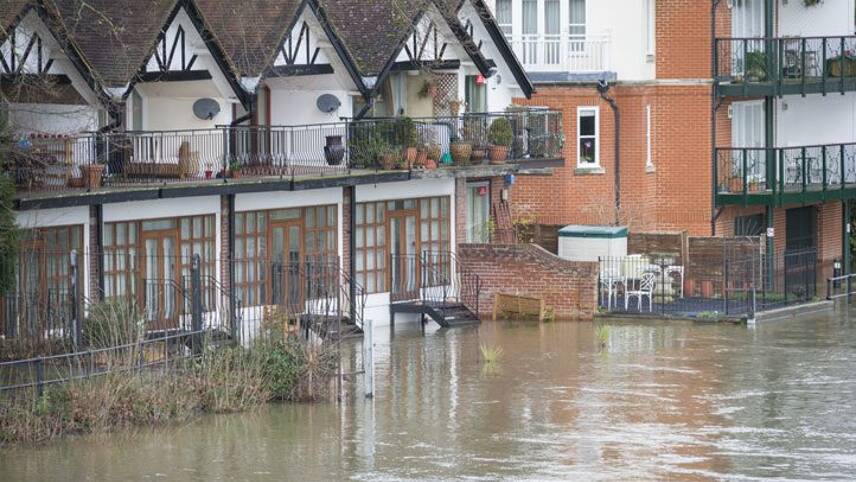Register for free and continue reading
Join our growing army of changemakers and get unlimited access to our premium content

Flooding and heatwaves are just some issues authorities are trying to adapt to
The call to action is being made through the organisation’s latest annual report on adaptation, submitted to the Government today (13 October) as part of the Climate Change Act.
Entitled ‘Living Better with a Changing Climate’, the report warns that the UK is dangerously underprepared for the physical impacts of climate change that are already baked in, regardless of future emissions reductions on the road to net-zero by 2050.
An increase in winter rainfall of 6%, and decrease in summer rainfall by 15%, by the 2050s, is predicted. This would have devastating impacts for farmers and would exacerbate water scarcity challenges that are already gripping cities including London due to population growth and ageing infrastructure.
The report also has some worrying predictions on flooding, stating that London’s sea level is expected to rise by 23cm by the 2050s and 45cm by the 1980s. Across the UK, river flows will be more extreme, the report warns; they are forecast to be 27% higher in the 2050s than today.
The message is that the flooding which gripped European nations including Germany this summer, killing more than 240 people, “will happen in this country sooner or later, however high we build our flood defences, unless we also make the places where we live, work and travel resilient to the more violent weather the climate emergency is bringing”. If this happens, it will be the UK’s most deadly flood since the 1950s.
The EA’s findings are similar to those put forward in the Climate Change Committee’s (CCC) latest assessment of climate risk. Published in June, that assessment stated that none of the risks facing the UK have decreased in urgency since the last assessment in 2016. It warned that the costs of damage from extreme weather events could triple by the 2080s without decisive policy action and increased investment in the short term.
The tone of the EA’s report is deliberately intended to get world leaders to view climate adaptation as an existential issue in all geographies, ahead of COP26.
“While mitigation might save the planet, it is adaptation, preparing for climate shocks, that will save millions of lives,” said EA chair Emma Howard Boyd.
“Choosing one over the other on the basis of a simple either/or calculation is like telling a bird it only needs one wing to fly.
“With that in mind, it is deeply worrying that adaptation is in danger of being grievously undercooked at COP26. Not by the UK Government, but by the world at large.”
State of play
The UK Government has been encouraging other nations to update climate adaptation plans ahead of COP26 in the build-up to the summit but, as has been the case with pledges to cut emissions under the Paris Agreement, dozens of nations are yet to produce them.
Domestic plans for adaptation were also widely criticised in the wake of the CCC report in June, prompting Whitehall to launch a £5m research programme assessing the impacts that warming temperatures and changing weather patterns will have on infrastructure in the UK.
On a global level, the Intergovernmental Panel on Climate Change’s (IPCC) most recent major report – described by the UN as “code red for humanity” – warned that most nations are underprepared for physical changes from global heating that are already inevitable.
The IPCC stated that even in a scenario in which rapid global decarbonisation takes place, it would take some two or three decades for global temperatures to stabilise. Additionally, “the global CO2-induced surface temperature increase would be gradually reversed but other climate changes would continue in their current direction for decades to millennia”.
COP26 Primer: Climate Adaptation & Resilience
With COP26 on the horizon, edie has completed its Primer Report series which provides businesses with everything they need to know regarding the five key themes of the talks.
The Primer Report on Climate Adaptation and Resilience examines how solutions are helping to safeguard some of the world’s most vulnerable committees from the impacts of the climate crisis, and why they must be rapidly scaled up through collaboration between governments, civil society, NGOs, academia and the private and public sectors.
Click here to download your free copy.
Sarah George


Please login or Register to leave a comment.